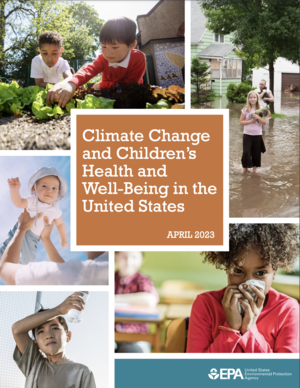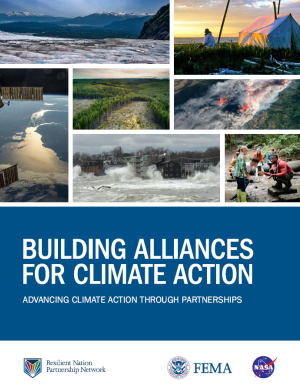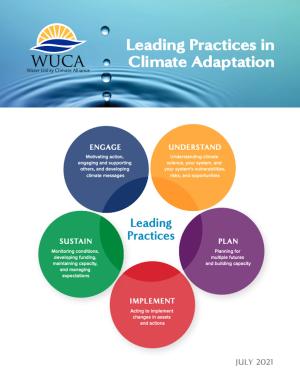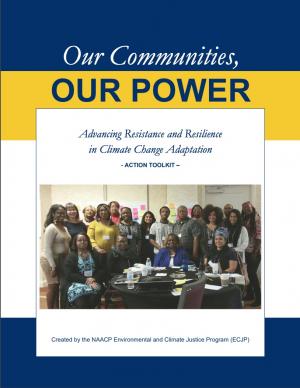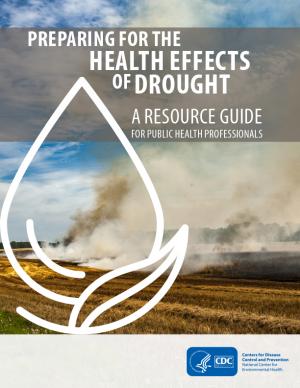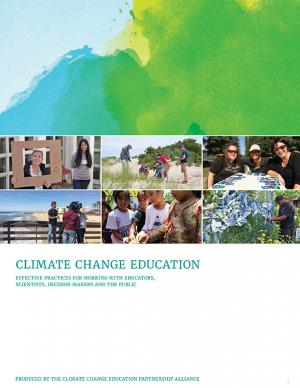Access a range of climate-related reports issued by government agencies and scientific organizations. Browse the reports listed below, or filter by scope, content, or focus in the boxes above. To expand your results, click the Clear Filters link.
Our climate is changing, and the health and well-being of children will continue to be affected in many ways. Children are uniquely vulnerable to climate change due to a variety of physical, cognitive, behavioral, and social factors. Climate change-related impacts in childhood can have lifelong consequences due to effects on learning, physical health, chronic disease, and other complications.
This national-scale, multi-sector report quantifies projected health effects associated with extreme heat, air quality, changing seasons, flooding, and infectious diseases. Where possible, the analyses consider the extent to which these risks disproportionately fall on children from overburdened populations.
To become climate resilient requires collective action. Our efforts must take a Whole-of-Government and Whole Community approach.
The Resilient Nation Partnership Network is working to address this through partnership. The result of our collective action is this Building Alliances for Climate Action resource. It is the work of many organizations and individuals, including federal representatives, faith leaders, community-based organizations, mayors and many more. At a time when many are searching for direction on how to address the climate crisis, this resource represents a unifying voice, helping guide the Whole Community forward
This is the FY22 edition of the U.S. Gllobal Change Research Program's annual report to Congress mandated by the the Global Change Research Act. The report provides an overview of the Program’s progress in delivering on its strategic goals as well as a summary of agency expenditures under USGCRP’s budget crosscut.
This collection of leading practices in climate adaptation covers a suite of climate adaptation actions and is intended to broadly promote collaborative learning. Each practice in the collection is explained and supported by concrete examples. These practices are drawn from WUCA work products and WUCA members' experiences, and, when possible, connected to relevant resources and related efforts. Most of these practices are appropriate for water utilities of any size, as well as other sectors interested in climate adaptation.
The current practices and where they are placed within the five essential climate adaptation action areas:
- Engage
- Understand
- Plan
- Implement
- Sustain
It is important to note that these action areas and leading practices are not prioritized. Instead, the most useful practices depend on the individual organization's needs and priorities.
The Beloved Community is a vision for our future where all people share equally in the wealth and bounty of the earth, where we protect its abundance, diversity, and beauty for future generations. In this vision of liberation, racism, exploitation, and domination are replaced by democracy, cooperation, interdependence, and love. To get there, we pursue transformative, systems-change solutions. What do we mean by this? The root causes of the problems our communities face—like climate change, racism, and economic inequality—are all deeply connected. Since the problems are connected, so are the solutions. The purpose of this toolkit is to put us on the path toward achieving this vision. Through the context of building equity and resilience into climate adaptation planning, we introduce strategies to transform our communities and, by extension, society. Our ultimate goal is to create lasting and systemic change. At the same time, we recognize the urgency of the issues our communities face and the need to take action now. That is why we pursue change at every scale—from policy changes to community-based projects—to institute the transformative change we need to uphold our vision of the beloved community.
This guide contains five modules that provide best practices on conducting vulnerability assessments, collaboration among stakeholders, communicating drought preparedness and response strategies, and where to find (and how to use) data on drought. The guide also includes a list of valuable resources for public health professionals. The authors of the guide also developed and included two attractive, user-friendly handouts that can be easily customized and reproduced for community outreach.
This guide provides recommendations for effective education and communication practices when working with different types of audiences. While effective education has been traditionally defined as the acquisition of knowledge, Climate Change Education Partnership (CCEP) Alliance programs maintain a broader definition of “effective” to include the acquisition and use of climate-change knowledge to inform decision making. The CCEP Alliance is supported by the National Science Foundation to advance exemplary climate change education through research and practice.

